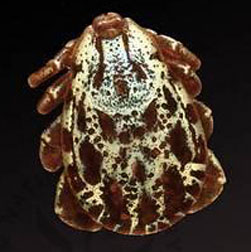Medical & Veterinary Research
Leucocytozoonosis is a disease caused by protozoan blood parasites of the genus Leucocytozoon that is mainly transmitted by the bite of various species of black fly (Simuliidae). Both wild and domestic bird species are susceptible to infection with Leucocytozoon species, including: chickens (L. caulleryi), ducks & geese (L. simondi), turkeys (L. smithi), pigeons & doves (L. marchouxi) and raptors (L. ziemanni and L. toddi). There has long been confusion in the authorship and date of the generic name, and the name of its type species. This uncertainty has been removed on behalf of the veterinary and pharmaceutical professions by a Commission ruling. [2001]
Isosporosis is a form of the disease coccidiosis that occurs in humans and other animals. The generic name Isospora is in wide use for the protozoa that cause it. The Commission was asked on behalf of the medical and veterinary professions to stabilise usage of the name by designation of Isospora suis (a parasite of pigs) as the type species that defines the genus. However, protistologists discussed this and alternative proposals at the 10th International Congress of Parasitology (Canada, 2002), and recommended in a recent comment published in the Bulletin that the Commission should not rule on this proposal until further discussions and research, currently being undertaken, have reached a conclusion. [2004]

Ticks (Acari) are important vectors of potentially debilitating and life-threatening diseases. There are more than 800 species of these obligate blood-sucking organisms. Diseases carried by ticks are transmissible between animals and humans (zoonotic diseases). Ticks can carry a remarkable array of pathogens including bacteria, spirochetes, rickettsia, protozoa, viruses and nematodes. The diseases these pathogens cause include babesiosis, ehrlichiosis, Rocky Mountain spotted fever, tularaemia, tick paralysis, tick typhus and Lyme disease. Three genera of ticks are of significant medical and veterinary importance: Dermacentor, Ixodes (species of this genus transmit Lyme disease) and Rhipicephalus. The Commission has ruled to stabilise the nomenclature of these genera and of species within them, including: D. andersoni (vector of Rickettsia rickettsia), I. angustus, I. woodi and R. sanguineus (vector for a wide range of infectious agents). [1922–1991]
